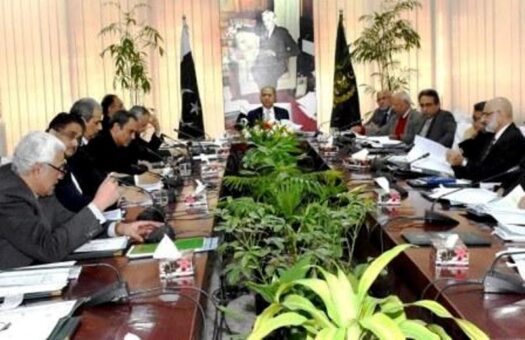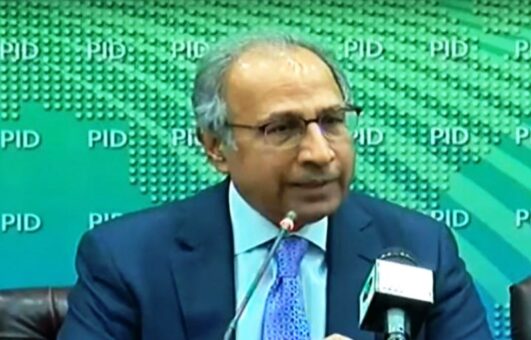ISLAMABAD: The Economic Coordination Committee (ECC) of the Cabinet on Monday decided to propose the federal cabinet to enhance support price of wheat to Rs1600 for the crop 2020-2021.
It was briefed to the ECC that was chaired by Dr. Abdul Hafeez Shaikh, Advisor to Prime Minister on Finance and Revenue that the support price mechanism plays a pivotal role in boosting wheat production as it stabilizes market and increases profitability of the farmers, a statement said.
The wheat support price has been decided to increase from Rs1200 to Rs1600.
Since 2010-2011, MSP for wheat has been revised 4 times.
The new price which has been decided by the ECC is close to the price recommended by Punjab, which is the largest producer of wheat in the country.
ECC was also apprised of the Status of wheat import by the Trading Corporation of Pakistan (TCP).
ECC was briefed that till January 2021 TCP shall be able to secure 1 million metric tons of wheat through international bidding.
On the request of MNFS&R, ECC decided that the initial allocation of TCP for the import of 1.50 MMT of wheat may be enhanced to 1.80 MMT to cater for the additional requirement of 0.30 MMT demanded by the KP and Sindh for shipment by mid-February.
It was also decided that 300,000 MT of wheat shall be imported on G2G basis from the Russian Federation by PASSCO.
ECC endorsed the request of Ministry of Food to import another 320,000 from Russia under the G2G arrangement but constituted a Committee of Secretaries of Finance, Commerce and Food Ministry to look into the possibility of import of wheat either by PASSCO or TCP.
It was also decided that further tendering of wheat may be stopped and TCP may resort to GTG arrangement for additional procurement of wheat.
Keeping in view the arrival of the new crop in March 2021, the forum decided that no vessel of imported wheat should be arranged either in public or private sector beyond February 2021.
ECC also decided to release 50 percent of the tariff differential subsidy to the Power Division.
Finance Division has earmarked Rs.140 billion for 2020-21 as Power Division subsidy.
The release of Rs.65.8 billion demanded by the Power Division will be used for payments to the power producers in order to maintain adequate liquidity.
On the summary moved by the Ministry of Industries and Production for the determination of Gas rate for operations of Fatima fertilizer and Agritech, ECC decided that gas rate of Rs772/MMBTU with Variable contribution margin at 186 per bag may be offered to both the units for the period 3rd November 2020 onwards.
It was briefed to the ECC that GoP’s share at this gas rate has been estimated by NFDC on the basis of RLNG’s last notified rate for July by OGRA, which is approximately 0.42 Billion.
Further, actual payment by GoP for price differential sum to SNGPL may vary due to difference in monthly rate of RLNG.
ECC granted approval for the sale of surplus power available at the incremental rate of Rs. 12.96/kwh to all industrial consumer categories, excluding zero-rated industrial consumers, on the incremental consumption over their respective historical consumption or established benchmark.
ECC also formed a committee consisting of Dr. Ishrat Hussain, Dr. Waqar Masood, Federal Minister for Industries and Production, Hammad Azhar, Federal Minister for Power, Omer Ayub, SAPM Nadeem Babar and SAPM Tabish Gohar to prepare a proposal to include K-Electric in the package.
The Committee will also propose whether the package shall continue for one year or three years.
The Committee will also analyze the need for any subsidy that will be involved in the package and source for arranging the same and all the issues that may come up in the calculation and distribution of that subsidy.




